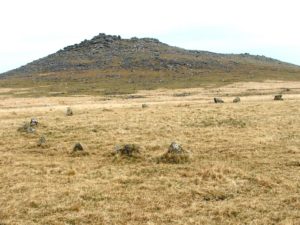Support us from £3/month
We deal with almost 1000 cases a year assisting communities, groups and individuals in protecting their local spaces and paths in all parts of England and Wales. Can you help us by joining as a member?
We are calling on the Department for Environment, Food and Rural Affairs and on the Welsh Government to finish the job on common land. Ten years ago the Commons Act 2006 provided for accurate and up-to-date registers of commons and commons councils to manage the commons. But the Act has not yet been fully brought into force, due to lack of resources.
These steps are essential if commons are to be protected against development and filching by neighbouring property-owners and to benefit fully from agri-environment schemes.
The aim of the Commons Act (part 1) is to ensure that the common-land registers, created by the Commons Registration Act 1965, are accurate and up to date. Part 1 has only been fully implemented in nine local-authority areas in England*. In the rest of England people can apply to remove land from the register if it was wrongly recorded as common, but it is not possible to add land which was wrongly omitted.
This is plainly unfair, if landowners can apply for commons to be removed from the register, people should also be able to reclaim the lost commons throughout England. Once the land is registered the public wins the right to walk, and in some cases to ride, there, so it is important that we should be able to record all the commons on the map.’
There is also a provision for electronic registers to replace the paper copies, which has not come into effect. This would allow for greater efficiency in administering and interpreting the registers.
Part 1 of the Act has not been implemented at all in Wales.
Part 2 of the Act allows landowners, common rightholders and communities to establish statutory commons councils. In ten years only two councils have been created in England—for the Brendon Hills in Devon and Bodmin Moor in Cornwall. There is none in Wales.
Commons councils enable the common to receive agri-environment payments, which boost the public benefit. The councils have democratic processes for decision-making, which is a fillip for traditional farming. Councils also encourage the management of the commons for their wildlife and natural beauty, and they can address animal-welfare issues. The Dartmoor commons, which are managed under a special law, the Dartmoor Commons Act 1985, show the advantages of having a statutory council.
But Defra has not provided sufficient resources to establish more commons councils. The one member of staff who was working on updating the registers and creating commons councils has departed, and there is no word of a replacement.
We have written to the minister, Rory Stewart, to urge him to maintain the cash for commons and village greens, and to give these marvellous assets the priority they deserve. And in Wales, while there is talk of implementing some of the Commons Act provisions, we have seen little progress.
Commons are places of great beauty and history, with rich flora and fauna, much-loved by the public. Money spent on them is a terrific investment in our health and happiness.
This year, 2106, marks the tenth anniversary of the Commons Act 2006, as well as the fiftieth anniversary of the regulations which led to the initial registration of commons. This is the year when the unfinished business on our invaluable commons should be completed.
_______________________________________________________________________
* The nine English registration authorities where part 1 of the Commons Act 2006 is fully in force are: Blackburn with Darwen, Cornwall, Cumbria, Devon, Herefordshire, Hertfordshire, Kent, Lancashire and North Yorkshire.

